A portable power station is a versatile and convenient device that provides electricity on the go. It is essentially a large rechargeable battery pack, equipped with multiple outlets to power various electronic devices and appliances.
One common question many people have about these power stations is whether they can run larger appliances, such as refrigerators.
In this article, we will explore the capabilities of a portable power station and determine if it can effectively run a refrigerator. We will also discuss important factors to consider when choosing a power station for this purpose and provide some tips for optimizing its performance.
Understanding Portable Power Stations
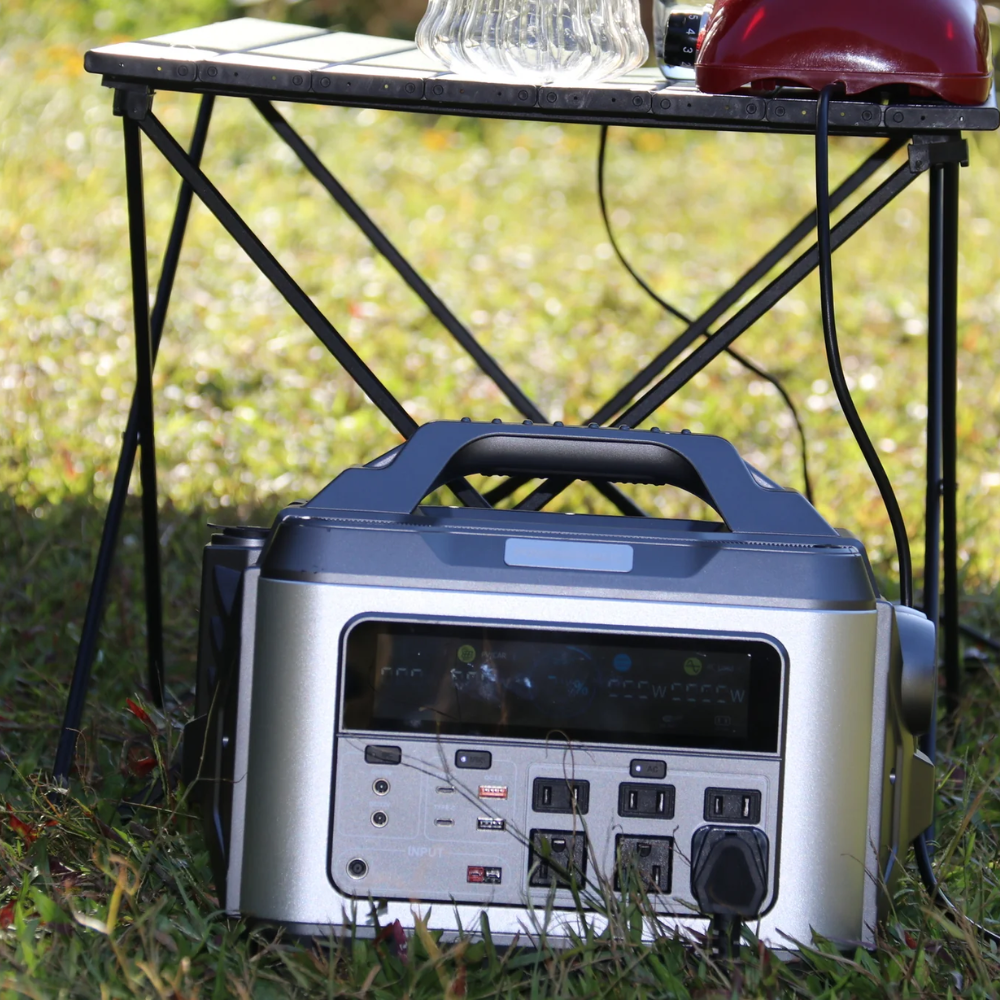
Portable power stations come in various sizes and models, but the basic concept remains the same. They are designed to store electricity from a power source, such as an outlet or solar panel, and release it when needed to power devices. Most portable power stations have multiple outlets for charging devices like phones and laptops, as well as larger appliances like TVs and refrigerators.
The capacity of a portable power station is measured in watt-hours (Wh), which determines how much energy it can store. Some smaller models may only have a capacity of around 200Wh, while larger ones can hold up to 1000Wh or more. When considering whether a portable power station can run a refrigerator, the capacity is an important factor to keep in mind.
Another critical component of a portable power station is its inverter, which converts the stored DC (direct current) energy into AC (alternating current) energy. This is an essential feature for running larger appliances like refrigerators, as they require AC power to function.
Can a Portable Power Station Run a Refrigerator?
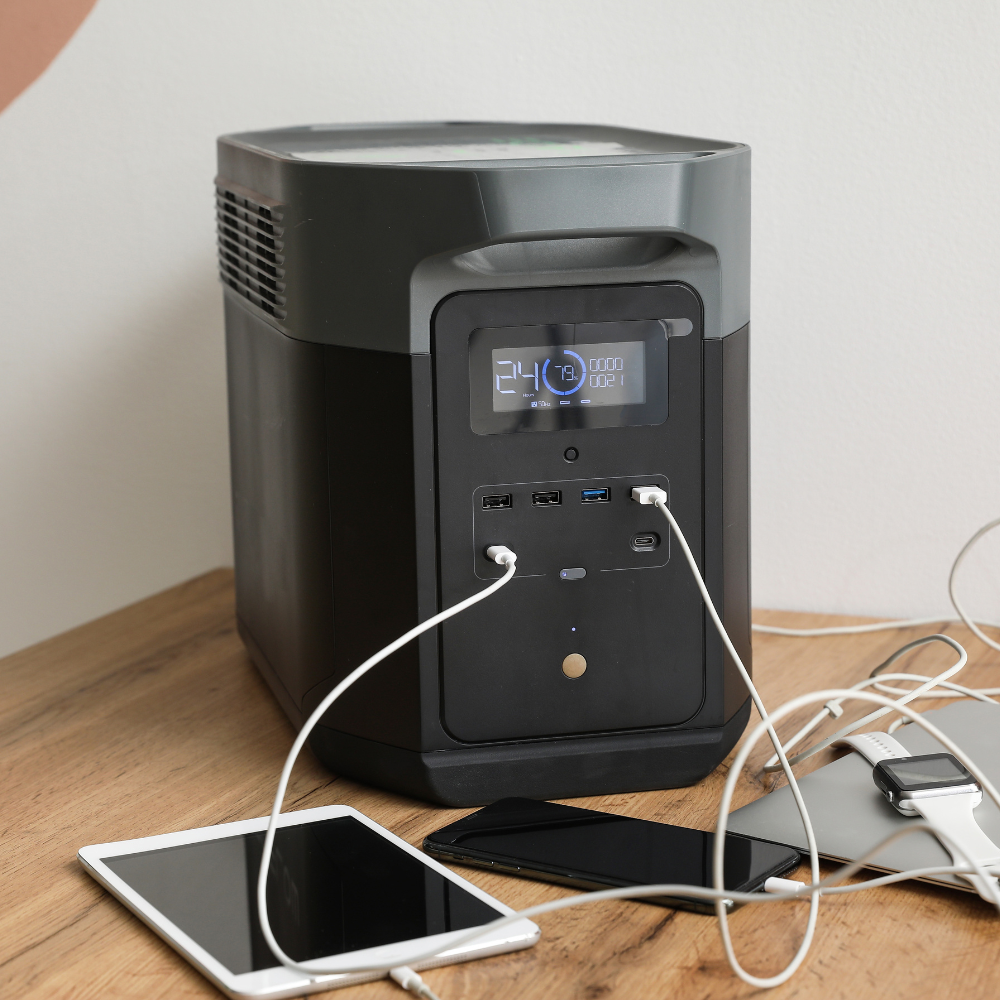
The short answer is yes, a portable power station can run a refrigerator. However, the specific model and capacity of the power station will determine how long it can sustainably operate the fridge. As mentioned before, the capacity of the power station is crucial. A higher Wh capacity means more stored electricity and longer run time for appliances.
To determine if a specific power station can run your refrigerator, you will need to know the wattage of your fridge. This information can usually be found on the appliance's label or manual. Once you have this number, you can compare it to the watt-hour capacity of the power station. Ideally, you want a power station with at least double the wattage of your refrigerator for optimal performance.
It is also important to consider other factors that may affect the power station's ability to run a refrigerator, such as its age and energy efficiency. Older fridges may require more energy to run, while newer models with Energy Star ratings are designed to use less electricity. Additionally, keeping the power station charged and avoiding overloading it with other devices can also impact its performance.
Does A Portable Power Station Have Limitations?
While a portable power station can effectively run a refrigerator, it does have some limitations. As mentioned before, the capacity of the power station is crucial for running larger appliances. This means that if you have a high-capacity refrigerator or want to use multiple devices simultaneously, you may need to invest in a more powerful and expensive power station.
Another limitation to consider is the length of time the power station can sustainably run the fridge. Depending on its capacity and other factors like temperature settings and door openings, the run time may vary. It's important to check the specifications of your power station and adjust your usage accordingly.
Lastly, it's worth noting that a portable power station may not be a feasible long-term solution for running a refrigerator. While it can be convenient for short periods or in emergency situations, constantly relying on it to power a larger appliance can strain the battery and shorten its lifespan. It's always best to have a backup plan or alternative power source in case of extended power outages.
How To Choose the Right Portable Power Station for Your Needs
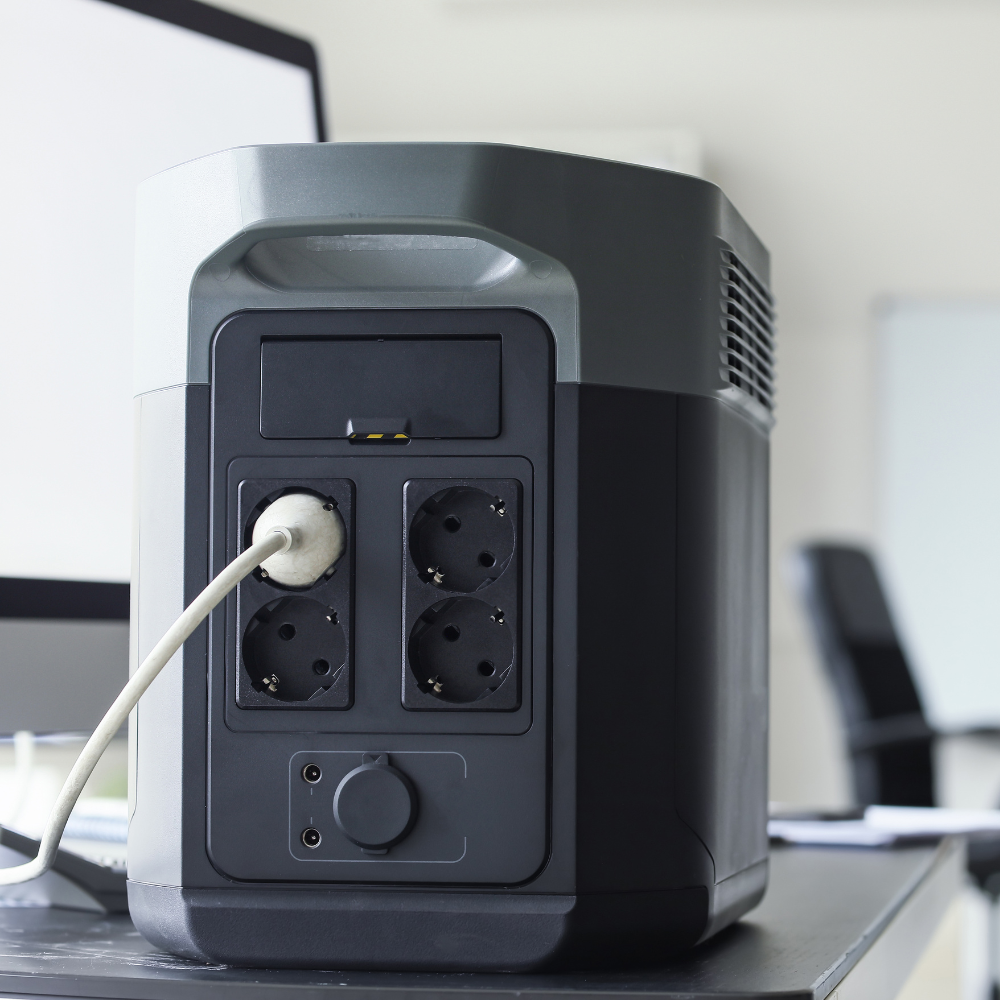
When selecting a portable power station to run a refrigerator, it's crucial to consider both your current and potential future needs. Here are some key factors to keep in mind:
Capacity
The capacity of a portable power station is a critical factor in determining its ability to run a refrigerator. Measured in watt-hours (Wh), this figure indicates how much energy the power station can store and subsequently deliver.
For running a refrigerator, look for a unit with a capacity of at least 500Wh, as this will typically provide enough power for most standard models. Additionally, it's essential to consider the peak wattage, which indicates the maximum power the station can supply during start-up.
Ensuring your portable power station has both adequate capacity and peak wattage will help guarantee that your refrigerator operates efficiently and effectively during use.
Inverter
As mentioned previously, the inverter is a crucial component of a portable power station when it comes to running larger appliances like refrigerators. The inverter converts the stored DC (direct current) energy into AC (alternating current) energy, which is necessary for powering most household appliances.
When selecting a portable power station for this purpose, look for models with pure sine wave inverters. These are more efficient and provide cleaner and stable power output compared to modified sine wave inverters.
Plus, pure sine wave inverters are better suited for sensitive electronics and can prevent damage to your refrigerator's compressor.
Outlets
The number and type of outlets on a portable power station are also important considerations when choosing one to run a refrigerator. Look for models that have multiple AC outlets, as well as USB ports for charging smaller devices like phones.
Additionally, some power stations may come with specialized outlets like DC car sockets or cigarette lighter ports. These can be useful if you need to charge certain devices or appliances that require these types of connections.
Make sure to carefully review the outlet options and their compatibility with your refrigerator and other devices before making a purchase.
Weight and Portability
Since a portable power station is meant to be, well, portable, it's essential to consider its weight and portability. Depending on your needs and how you plan to use the power station, you may need a more lightweight and compact model.
However, keep in mind that larger capacity power stations will typically be heavier and bulkier due to their bigger batteries. Think about where you will store or transport the unit and choose one that fits those requirements.
Plus, if you anticipate using the power station for outdoor activities like camping, look for models with durable and rugged designs to withstand different environments.
Additional Features
While a portable power station's primary purpose is to provide electricity, some models come with additional features that can enhance its functionality. These may include built-in flashlights, solar panel compatibility, or even wireless charging capabilities.
Consider which of these features would be useful for your needs and look for models that offer them. However, keep in mind that these added features may also increase the cost of the power station.
Plus, make sure to read reviews and research the reliability and durability of these added features before making a purchase. You want your portable power station to be a long-term investment, not just a short-term fix for powering your refrigerator.
So these additional features should also be of good quality and able to withstand regular use.
Does a Portable Power Station Suit My Needs for Running a Refrigerator?
Determining whether a portable power station is suitable for running your refrigerator depends on several factors, including your power needs, usage frequency, and specific refrigerator model.
If you frequently experience power outages or plan to go camping in your RV, a portable power station can be an excellent temporary solution for keeping your refrigerator running. However, for everyday use in a home setting, it may not be the most practical choice.
Consider the wattage requirements of your refrigerator, including its start-up surge, as well as the capacity of the power station you're considering. A suitable unit should ideally meet or exceed these requirements to function effectively.
Additionally, think about the duration of power supply you’ll need; a portable power station can be convenient but often has limitations in run time and may require frequent recharging. If you find your usage aligns with the capacity and portability of a power station, it can serve your needs well.
How Much Should I Spend on a Portable Power Station to Run My Refrigerator?
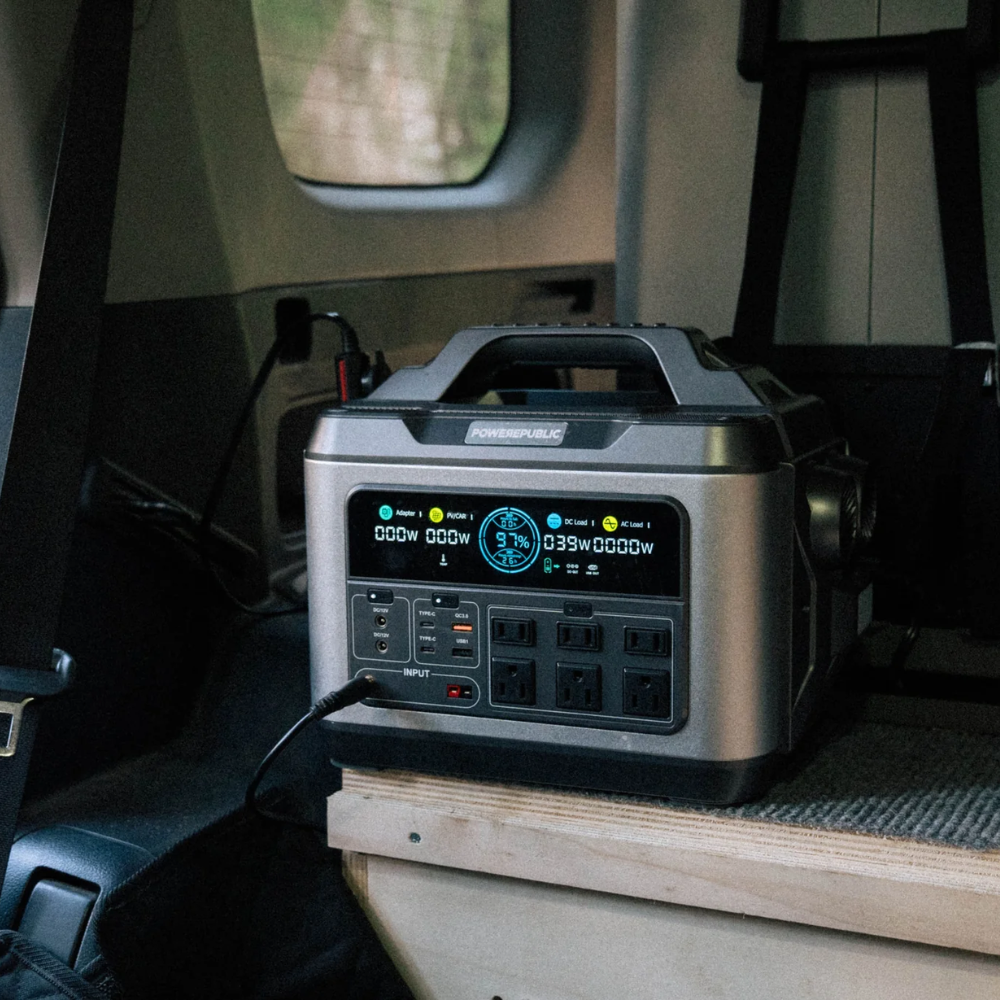
The price of portable power stations can vary greatly depending on the brand, capacity, and added features. Generally, you can expect to pay anywhere from $200 to $1000 for a quality unit that can run a refrigerator effectively.
Keep in mind that purchasing a cheaper power station may save you money upfront but may not have adequate capacity or features for your needs. On the other hand, investing in a more expensive unit with higher capacity and additional features may provide long-term cost savings and convenience.
Consider your budget and prioritize which features are most important to you when selecting a portable power station. Don't forget to read reviews and compare prices from different retailers to find the best deal.
And remember, a portable power station is an investment that can provide peace of mind during power outages or outdoor adventures while also potentially saving you money on food spoilage. So it may be worth spending a bit more for a quality unit that can effectively run your refrigerator when needed.
Tips for Using a Portable Power Station to Run a Refrigerator
When using a portable power station to run your refrigerator, there are a few tips that can help maximize its effectiveness and longevity. Here are a few tips to keep in mind:
- Determine the wattage requirements: Before purchasing a power station, make sure to check your refrigerator’s wattage requirements and choose a unit that can meet or exceed those needs. Also, take note of any start-up surges that may require a higher wattage output.
- Use energy-saving settings: Most refrigerators have energy-saving settings that can help reduce their power consumption. Make sure to utilize these settings when running your refrigerator on a portable power station to prolong the unit's battery life.
- Don't overload the power station: It's essential not to exceed the recommended wattage capacity of your power station. Overloading it can lead to overheating and potentially damage the unit. Additionally, avoid simultaneously running other high-wattage appliances while using the power station for your refrigerator.
- Recharge regularly: To ensure your portable power station is always ready for use, recharge it regularly. Some models may require daily recharging, while others can last longer without needing to be plugged in. Read the manufacturer's recommendations and plan accordingly.
- Read the instruction manual: Each portable power station may have specific instructions for usage and maintenance. Make sure to read the instruction manual thoroughly to avoid any potential issues or damage to the unit.
By following these tips, you can effectively use your portable power station to run your refrigerator and keep your food fresh during power outages or outdoor activities without worry.
FAQs
Can a portable power station run a refrigerator?
Yes, a portable power station can run a refrigerator if it has sufficient power and battery capacity. It's important to check the power requirements of the refrigerator and compare them to the portable power station's capacity to ensure compatibility.
How does battery capacity affect running a refrigerator on a portable power station?
Battery capacity is crucial because it determines how long a portable power station can run a refrigerator. A portable power station with higher battery capacity, especially those using lithium-ion batteries, will provide sufficient power for longer periods during a power outage.
Can a portable power station run both a refrigerator and an air conditioner?
A portable power station can run both a refrigerator and an air conditioner if it has sufficient battery capacity and power output. However, the power usage of both appliances must be considered to ensure the portable power station's capacity is not exceeded.
Can solar panels recharge a portable power station running a refrigerator?
Yes, solar panels can recharge a portable power station while it's running a refrigerator. This is especially useful during a power outage, as the solar panels can provide continuous power and extend the battery life of the battery-powered generator.
What are the power requirements for running a refrigerator on a battery powered generator?
The power requirements for running a refrigerator on a battery powered generator depend on the refrigerator's wattage and starting surge. It's essential to match these requirements with the portable power station's capacity to ensure sufficient power is available.
Do lithium ion batteries in a portable power station provide enough power for a refrigerator?
Yes, lithium-ion batteries in a portable power station can provide enough power for a refrigerator, depending on the battery capacity and the refrigerator's power usage. These batteries are known for their efficiency and long-lasting performance, making them ideal for such applications.
Conclusion
In conclusion, a portable power station can be a valuable tool for running a refrigerator during power outages or outdoor adventures. It's essential to consider your specific needs and usage frequency when selecting a unit, as well as the additional features that may enhance its functionality.
Remember to prioritize quality over price and read reviews before making a purchase. And once you have your portable power station, make sure to follow recommended tips for usage and maintenance to ensure its effectiveness and longevity.
Having a reliable source of electricity during emergencies or while on the go is crucial, and investing in a quality portable power station can provide peace of mind and potentially save money on food spoilage costs. So if you're considering purchasing one, make sure to do your research and choose a unit that suits your needs best.
Subscribe to our email newsletter and unlock access to members-only content and exclusive updates.
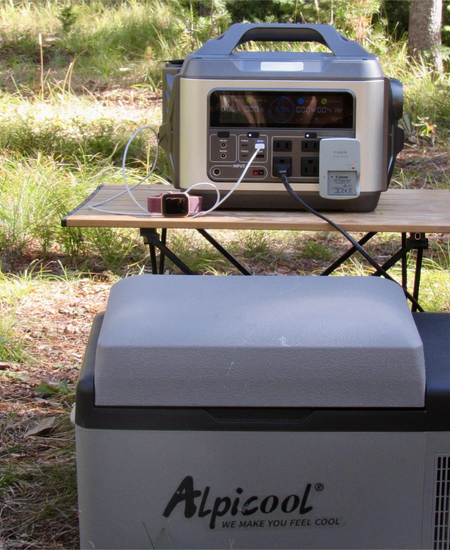
Comments